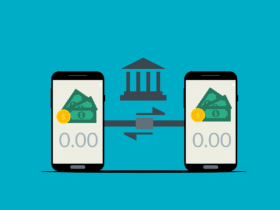When Facebook acquired Oculus back in 2014, one of Mark Zuckerberg’s beliefs was that virtual reality was eventually going to be one of the more widely-used innovations that the world would be implementing after a few years.
While VR did indeed do pretty well as a niche market for gaming and entertainment, Facebook took it to a different level by introducing us to Facebook Spaces: A VR version of the social media giant’s identity.
But what happened to Facebook Spaces, and why didn’t it take off?
Facebook Spaces is closing because Facebook is readying its infrastructure for the upcoming Facebook Horizon VR metaverse, which is going to be its next big step in its investment towards VR.
Of course, there were also issues that plagued Facebook Spaces throughout its lifetime as well that expedited its demise.
While Facebook Spaces only had a limited life, it remained a sort of experimental feature that allowed Facebook to truly test the depths of what they could do with VR and the issues that they had to resolve before they went big on their next social VR venture.
As a result of such testing, Facebook is now looking to rebuild once more on its Horizon community- which promises to be bigger and better than Spaces ever was!
What Happened To Facebook Spaces?

There was a point in time when Oculus was nothing more than an independent company that didn’t have enough funding to even release its first Rift headset.
However, because of how promising and successful the first Rift was, Oculus caught the eye of social media giant Facebook who ultimately acquired the entire company in 2014.
Of course, Mark Zuckerberg didn’t acquire Oculus just for kicks and giggles, as the CEO himself believed that VR was going to be commonplace in society in the near future.
Since acquiring Oculus, Facebook has allowed the VR brand to integrate with different apps and games in the hopes of VR becoming mainstream among different people today.
Of course, Facebook also developed its own VR app called Facebook Spaces. But what is Facebook Spaces?
Facebook Spaces is what you would call a VR version of Facebook in the sense that you could use it to interact and communicate with other people in a virtual space created inside the app.
It allowed an user to use their own 3D avatar so that they could interact with friends virtually through a Oculus headset.
The VR app allowed you to create your own avatar to use for Facebook Spaces, but there was also a function that allowed the app to create an avatar for you through the tagged photos you already had on Facebook.
These cartoonish, 3D avatars became the well-known main stars of Facebook Spaces.
What users could then do was that they could use their own avatar in a VR room generated through Facebook Spaces to feel like they were actually conversing and interacting with friends.
The difference here is that you could achieve this in a virtual world instead of in physical reality.
The way that Spaces worked was that it was focused around a central control table that could be interacted with to do what you wanted while conversing and interacting with people in VR.
For example, you could bring up pictures or even play music and videos on the virtual table.
Thanks to the Oculus’ motion-tracking technology through its controllers and cameras, you could even make use of a 3D sketching pen and a virtual camera in Facebook Spaces.
Essentially, while all of the other companies out there were much more focused on developing interactive videos, sceneries, and games that could be used with VR, Facebook placed its focus more on the social side of virtual reality.
In a sense, this is why Facebook Spaces was just generally the VR version of the Facebook social media platform.
If you’ve been paying close attention, we’ve been talking about Facebook Spaces in the past tense. That’s because Facebook Spaces is now just that- a relic of the past that has been since discontinued by Facebook.
What exactly happened with Facebook Spaces- and why didn’t it become as big as it should have been?
Well, there are plenty of things you could point to when you are wondering what happened to a VR app such as Facebook Spaces. For that, we have to go back to the very nature of what VR is to understand some of the issues that plagued Spaces.
First off, Facebook Spaces became a niche primarily because of how limited it was to VR.
Essentially, those who didn’t have access to VR headsets (which-let’s face it- is most of the population) simply couldn’t use it.
It’s not the same as Facebook or any other social media platform, which of course you could use simply by flipping out your smartphone (which pretty much everyone has).
In that sense, Facebook Spaces basically restricted itself to those who were not only willing to spend a lot of money on a good Oculus headset, but also only to those who knew that they could use their VR headsets for a lot of different functions as well.
For someone who was looking to buy an Oculus VR headset just so they could use Spaces, there just really was no point in doing so. You could simply chat with friends online through other means, or even just meet up with them whenever you could in the real world!
A VR headset, even as it is today, is a pretty impractical purchase because of how it can hardly be used for anything productive or useful.
In a way, it’s still only a mode of entertainment that’s just going to lighten your wallet by a significant sum. This is why there are plenty of people who are still hesitant to buy into the entire VR movement.
Of course, Facebook Spaces also shot itself on the foot when it was made available only to the Oculus Rift and the HTC Vive.
Meanwhile, it wasn’t even made available to the popular Oculus Quest line of VR headsets. This only made its use and audience more limited.
Another issue that made Facebook Spaces restricted instead of inclusive is the fact that it was focused too much on Facebook.
What that basically meant is that you needed to be Facebook friends with someone for you to be able to connect with them through Facebook Spaces.
Now, this was an issue because there are undoubtedly some people with whom you don’t necessarily want to be Facebook friends but still need to be in a virtual meeting with.
For instance, this may be a boss or a business partner whose relationship with you is strictly professional.
So, by forcing you to become Facebook friends just so you could use Facebook Spaces, it completely defeated the purpose of choosing who you want your Facebook audience to be.
Aside from such barriers, Facebook Spaces was also plagued with minor issues that tend to be nuisances. A good example is how someone you were interacting with abruptly can get teleported a dozen feet away due to connection or bandwidth issues.
Finally, there was also the fact that it really brought nothing entirely novel to the table other than the aforementioned cartoon avatars.
Everything that you could do on Facebook Spaces was already possible either on Facebook or in real life.
Granted that Facebook Spaces started several years before the COVID-19 pandemic (which could have easily given it a good reason to exist), its interactive and immersive environment just didn’t seem worth the hundreds of dollars that people had to spend just so they could use it.
Why is Facebook Spaces Closing?

As mentioned earlier in the article, Facebook has announced quite a while ago its intention of completely closing down Facebook Spaces.
We did say that Spaces had a lot of different issues that needed to be resolved, but such issues were not the main reasons as to why Facebook made the ultimate decision.
Instead, the main impetus behind closing down Spaces was simply to make way for something new (and even better!).
It’s only very recently that the company has begun delving into a new VR experience that it is calling Facebook Horizon.
Horizon isn’t necessarily all that different from Facebook Spaces as it still involves creating a virtual world where you can meet with different people virtually through the use of 3D avatars.
However, the plan with Horizon is to make it so much bigger to the point that it would become an entirely new metaverse on its own.
Facebook started off initially with the Horizon Workrooms.
Basically, Horizon Workrooms is a VR app that makes use of a virtual workroom or meeting room where you can have a meeting or conference with other people that are also using the same app through their Oculus VR headsets.
It also makes use of Oculus’ hand-tracking feature to allow you to take notes on a virtual keyboard while you are in the middle of a virtual meeting.
Think of how millions of people around the world were able to take advantage of different meeting apps such as Zoom and Google Meet during the present COVID-19 pandemic.
Those apps made conferencing so much easier because people could have meetings online without having to actually meet in person.
That concept is the very essence of what Horizon Workrooms is all about- just on an even more enhanced level.
The difference is that Workrooms allows you to have a more interactive and immersive meeting experience that’s almost similar to an actual face-to-face meeting with business partners, bosses, and clients.
It effectively bridges the gap that Zoom and Google Meet weren’t able to connect when it came to online meetings.
However, what you should really know is that Facebook’s Horizon Workrooms is only the very beginning of the Horizon metaverse (as Mark Zuckerberg himself likes to say).
Facebook still very much believes in what virtual reality can do in the future, even though people today are still hesitant to buy into what VR can achieve in everyday life.
Is Horizon Workrooms better than Spaces?

As Facebook pulled the plug on Spaces to make room for Horizon and Workrooms, you might be wondering if Horizon is actually a lot better than Spaces.
Well, to put that query to rest- it actually is a superior product. If it wasn’t better, Facebook never would have given up on Spaces in the first place!
First off, you can really see the difference in the 3D avatars that Workrooms and Spaces have.
The avatars in Workrooms simply look a lot smoother and less pixelated when compared to their Spaces predecessors.
The same improvement applies to the surrounding virtual environment as well. As a result, this gives a significantly better visual experience while you are using Workrooms.
There is also the fact that Workrooms is not centered on Facebook. Instead, Horizon is an entirely new community on its own in that you have to create a unique Horizon account in order to use Workrooms.
This means that Facebook is really differentiating from its social media platform to instead provide a different environment where it’s safer to add professional acquaintances and contacts instead of forcing you to befriend them on Facebook.
Inclusiveness can still be a problem when it comes to Horizon Workrooms, but the good news is that the app is available on the Oculus Quest 2- one of Oculus’ most popular standalone VR headsets.
As such, you can use it in a standalone headset without the need to get hooked up to a computer.
However, the biggest difference that makes Horizon Workrooms better than Facebook Spaces is its intention.
As mentioned, Workrooms provides a much more practical application as it is generally just a virtual reality version of Zoom or Google Meet.
On the other side of things, while Spaces also allowed you to have meetings, its overall approach was geared more towards social gatherings rather than professional ones.
So, in a way, Horizon Workrooms gives people more incentives to buy into the VR movement because of the fact that it comes with this more practical approach.
Spaces was more of a luxury because it really didn’t have that practical side that made you want to purchase a VR headset.
It’s specifically because Workspaces can be used for practical purposes that it is hoping will justify the price tag that comes along with it.
In a similar vein, the practicality becomes more attractive to certain audiences even as VR remains a niche market for the time being.
With all that said, the fact that Horizon is better than Spaces ultimately justifies Facebook’s decision to pull the plug so that it can migrate all of its efforts and resources into the new project.
Horizon is still in very early stages, so we can’t say for sure what it will be fully capable of in the future. However, it does seem promising!


















